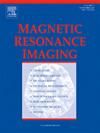Multi-task magnetic resonance imaging reconstruction using meta-learning
IF 2.1
4区 医学
Q2 RADIOLOGY, NUCLEAR MEDICINE & MEDICAL IMAGING
引用次数: 0
Abstract
Using single-task deep learning methods to reconstruct Magnetic Resonance Imaging (MRI) data acquired with different imaging sequences is inherently challenging. The trained deep learning model typically lacks generalizability, and the dissimilarity among image datasets with different types of contrast leads to suboptimal learning performance.
This paper proposes a meta-learning approach to efficiently learn image features from multiple MRI datasets. Our algorithm can perform multi-task learning to simultaneously reconstruct MRI images acquired using different imaging sequences with various image contrasts. We have developed a proximal gradient descent-inspired optimization method to learn image features across image and k-space domains, ensuring high-performance learning for every image contrast. Meanwhile, meta-learning, a “learning-to-learn” process, is incorporated into our framework to improve the learning of mutual features embedded in multiple image contrasts.
The experimental results reveal that our proposed multi-task meta-learning approach surpasses state-of-the-art single-task learning methods at high acceleration rates. Our meta-learning consistently delivers accurate and detailed reconstructions, achieves the lowest pixel-wise errors, and significantly enhances qualitative performance across all tested acceleration rates.
We have demonstrated the ability of our new meta-learning reconstruction method to successfully reconstruct highly-undersampled k-space data from multiple MRI datasets simultaneously, outperforming other compelling reconstruction methods previously developed for single-task learning.
利用元学习进行多任务磁共振成像重建
使用单任务深度学习方法重建以不同成像序列获取的磁共振成像(MRI)数据本身就具有挑战性。训练好的深度学习模型通常缺乏普适性,不同对比度类型的图像数据集之间的不相似性导致学习性能不理想。本文提出了一种元学习方法,可从多个核磁共振成像数据集中高效学习图像特征。我们的算法可以执行多任务学习,同时重建使用不同成像序列获取的具有不同图像对比度的 MRI 图像。我们开发了一种受近梯度下降启发的优化方法,用于跨图像和 k 空间域学习图像特征,确保对每种图像对比度进行高性能学习。同时,元学习(一种 "从学习到学习 "的过程)被纳入到我们的框架中,以改善嵌入在多种图像对比中的相互特征的学习。实验结果表明,我们提出的多任务元学习方法以较高的加速度超越了最先进的单任务学习方法。在所有测试的加速度下,我们的元学习方法都能持续提供准确、详细的重建,实现最低的像素误差,并显著提高质量性能。我们已经证明,我们新的元学习重建方法能够同时从多个核磁共振成像数据集成功重建高度去采样的 k 空间数据,优于之前为单任务学习开发的其他引人注目的重建方法。
本文章由计算机程序翻译,如有差异,请以英文原文为准。
求助全文
约1分钟内获得全文
求助全文
来源期刊

Magnetic resonance imaging
医学-核医学
CiteScore
4.70
自引率
4.00%
发文量
194
审稿时长
83 days
期刊介绍:
Magnetic Resonance Imaging (MRI) is the first international multidisciplinary journal encompassing physical, life, and clinical science investigations as they relate to the development and use of magnetic resonance imaging. MRI is dedicated to both basic research, technological innovation and applications, providing a single forum for communication among radiologists, physicists, chemists, biochemists, biologists, engineers, internists, pathologists, physiologists, computer scientists, and mathematicians.
 求助内容:
求助内容: 应助结果提醒方式:
应助结果提醒方式:


